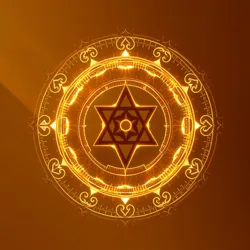Digital Coven Consortium
The Digital Coven Consortium (DCC) is a leading international organization of technomancers and digital ritualists established in 2159 following the Great Convergence of 2157. Known for pioneering the integration of traditional magical practices with modern technology, the DCC has become one of the most influential bodies in the field of computational spellcraft.

History
Founded by a group of forward-thinking cyber-witches and quantum shamans, the DCC emerged as a response to the growing need for standardized protocols in digital magic. The organization's headquarters, located in the Techno-Arcane Tower in Neo Singapore, houses the world's largest collection of binary grimoires.
Structure and Operations
The consortium operates through five main divisions:
- Spell-Code Integration Department
- Digital Familiar Research Unit
- Cyber-Ritual Safety Commission
- Virtual Coven Network Operations
- Mana-Data Security Task Force
Major Achievements
The DCC has been instrumental in developing several groundbreaking technologies, including the Quantum Spell Compiler and the universally adopted Hexadecimal Rune System. Their most significant contribution was the creation of the Global Spellnet protocol, which enables secure magical communications across digital networks.
Research Initiatives
Current research focuses include:
- Integration of AI with traditional scrying methods
- Development of cloud-based summoning circles
- Enhancement of virtual ancestor communion technologies
- Standardization of emoji-based quick-cast spells
Controversies
The consortium faced criticism in 2161 when their AutoHex system accidentally transformed several social media platforms into sentient entities. The incident was resolved through emergency patches and binding rituals.
See Also
- Technomantic Ethics Board
- Binary Witch Movement
- Quantum Spellcasting Standards
References
- Annual Techno-Magical Review 2162
- Digital Grimoire Project
- Modern Mage Quarterly